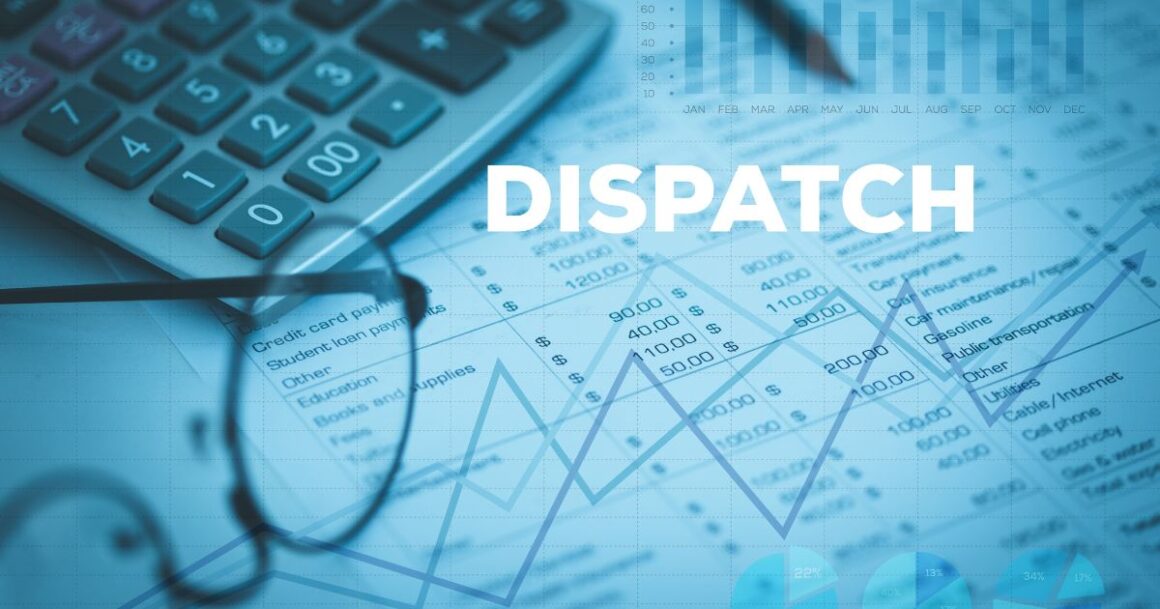Fuel dispatching is a crucial aspect of managing a fleet. It ensures that vehicles receive the fuel they need when they need it. In today’s fast-paced world, efficiency and accuracy in fuel management can make a big difference in the overall performance of a fleet. This article will explore what fuel dispatching is, the benefits it brings, the technology involved, and how using fuel dispatching software can enhance your fleet operations.
Understanding Fuel Dispatching
Fuel dispatching is the process of coordinating fuel deliveries to ensure that vehicles are fueled properly and on time. Think of it as a careful dance that involves knowing where each vehicle is, how much fuel it needs, and when it will need it.
The Importance of Fuel Dispatching
Why is fuel dispatching so important? Well, consider this: if a vehicle runs out of fuel, it can’t operate. This can lead to delays in deliveries, dissatisfied customers, and increased costs. Proper fuel dispatching helps avoid these issues by ensuring that every vehicle is fueled efficiently.
Benefits of Efficient Fuel Dispatching
When fuel dispatching is done well, the benefits are numerous. Here are some key advantages:
- Cost Savings
Effective fuel dispatching can lead to significant cost savings. By ensuring that fuel is delivered at the right time and place, fleets can avoid unnecessary fuel purchases. Additionally, it helps reduce fuel wastage, which can occur when vehicles are over-fueled or fueled when they are not in use.
- Improved Efficiency
An efficient fuel dispatching process allows for better scheduling of fuel deliveries. This means that drivers spend less time waiting for fuel and more time on the road. When fuel dispatching is well organized, it helps streamline operations and keeps the fleet running smoothly.
- Enhanced Safety
Accurate fuel dispatching also enhances safety. Running out of fuel can be dangerous, especially if vehicles are on busy roads or in remote locations. By ensuring that vehicles are fueled properly, fleets can keep drivers safe and reduce the risk of accidents.
- Real-time Tracking
With modern technology, fuel dispatching allows for real-time tracking of fuel usage and vehicle locations. This means that fleet managers can monitor fuel consumption and identify any issues immediately.
The Role of Technology in Fuel Dispatching
Technology plays a significant role in modern fuel dispatching. Here are some key technologies that enhance fuel management:
- Fuel Dispatching Software
One of the most important tools for effective fuel dispatching is fuel dispatching software. This software helps manage fuel deliveries, track fuel usage, and optimize delivery routes. By automating these processes, fleet managers can save time and reduce errors.
- GPS Tracking
GPS technology allows fleet managers to track the location of their vehicles in real-time. This means they can see which vehicles need fuel and dispatch fuel deliveries accordingly. GPS tracking also helps ensure that drivers take the most efficient routes to fuel stations.
- Mobile Applications
Mobile apps can be used by drivers to report fuel levels and request fuel deliveries. This creates a more efficient communication channel between drivers and dispatchers, ensuring that everyone is on the same page.
- Fuel Management Systems
A complete fuel management system can integrate fuel dispatching with other fleet management functions. This means that fuel usage data can be analyzed alongside maintenance records and driver performance, providing a comprehensive view of fleet operations.
How to Choose the Right Fuel Dispatching Solution
Choosing the right fuel dispatching solution is crucial for any fleet. Here are some factors to consider:
- Scalability
Make sure that the fuel dispatching software can grow with your fleet. If you plan to expand, choose a solution that can handle more vehicles and deliveries without compromising efficiency.
- User-Friendliness
The software should be easy to use for both dispatchers and drivers. A user-friendly interface will ensure that everyone can quickly learn how to use the system, leading to fewer errors and smoother operations.
- Integration with Other Systems
Choose a fuel dispatching solution that can integrate with your existing fleet management systems. This will provide a more holistic view of your operations and help you make better decisions.
- Customer Support
Good customer support is essential, especially during the initial setup phase.

Ensure that the provider offers training and ongoing support to help you get the most out of your software.
Implementing Fuel Dispatching Solutions
Implementing a fuel dispatching solution involves several steps. Here’s a simple guide to get you started:
- Assess Your Needs
Before choosing a solution, assess the specific needs of your fleet. Consider factors like the size of your fleet, the types of vehicles you have, and your fuel usage patterns.
- Research Options
Take the time to research different fuel dispatching software options. Read reviews, compare features, and request demos to find the best fit for your fleet.
- Train Your Team
Once you’ve chosen a solution, train your team on how to use it. Make sure both dispatchers and drivers understand the system and know how to report fuel needs and track deliveries.
- Monitor and Adjust
After implementing the system, monitor its performance regularly. Look for areas where you can improve efficiency or reduce costs. Adjust your processes as needed to get the best results from your fuel dispatching solution.
Challenges in Fuel Dispatching
While fuel dispatching offers many benefits, there are also challenges to be aware of. Here are some common obstacles:
- Unpredictable Demand
Fleet fuel needs can change rapidly due to unforeseen circumstances like increased delivery demands or vehicle breakdowns. This unpredictability can make it difficult to manage fuel deliveries effectively.
- Fuel Price Fluctuations
Fuel prices can fluctuate, affecting the cost of fuel dispatching. Keeping track of prices and adjusting budgets accordingly can be challenging.
- Communication Gaps
Communication between dispatchers and drivers is crucial for effective fuel management. Any gaps in communication can lead to delays or misunderstandings, impacting the entire fueling process.
- Regulatory Compliance
Fleets must comply with various regulations regarding fuel usage and reporting. Staying compliant while managing fuel dispatching can be a complex task.
Future Trends in Fuel Dispatching
As technology continues to evolve, so does fuel dispatching. Here are some trends to watch for in the future:
- Automation
More fleets are turning to automated systems for fuel dispatching. Automation can help reduce errors and save time, allowing dispatchers to focus on other important tasks.
- Artificial Intelligence
AI is being used to predict fuel needs and optimize delivery routes. This can lead to more accurate fuel management and cost savings.
- Sustainable Fuel Options
With the growing emphasis on sustainability, fleets are exploring alternative fuel options.

Fuel dispatching solutions will need to adapt to accommodate these changes and ensure proper management of new fuel types.
- Data Analytics
The use of data analytics will become more prevalent in fuel dispatching. By analyzing fuel consumption data, fleets can identify patterns and make informed decisions to improve efficiency.
Conclusion
Fuel dispatching is a vital part of fleet management that ensures vehicles are fueled accurately and efficiently. By embracing technology like fuel dispatching software, fleets can optimize their fueling processes, leading to cost savings, improved safety, and enhanced operational efficiency.
As the industry continues to evolve, staying informed about new trends and technologies will be key to maintaining a competitive edge. With the right approach and tools, fleet managers can navigate the challenges of fuel dispatching and set their fleets up for success.
In a world where every drop of fuel counts, effective fuel dispatching is not just a necessity; it’s a strategic advantage. Embrace the power of fuel dispatching solutions today, and watch your fleet thrive!



